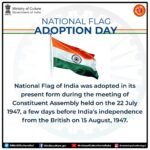Amendment to the Delimitation Act, 2002 and the Representation of the People Act

The Union Cabinet chaired by the Prime Minister Shri Narendra Modi has given its approval to amend section 11 of the Delimitation Act, 2002 and section 9 of the Representation of the People Act, 1950. It will enable Election Commission to carry out limited delimitation of Assembly and Parliamentary Constituency(cies) in the Cooch Behar District of West Bengal consequent upon the exchange of 51 Bangladeshi enclaves and 111 Indian enclaves respectively between India and Bangladesh, with effect from 31st July, 2015. This is in pursuance of the Constitution (One Hundredth Amendment) Act, 2015 and also allows for introduction of a Bill, namely, the Election Laws (Amendment) Bill, 2016 in Parliament.
Background
In a historic pact between India and Bangladesh, 51 Bangladeshi enclaves (Chhitmahals) in Indian Territory and 111 Indian enclaves in Bangladesh territory were exchanged with effect from 31st July, 2015. The move altered the geography and demography of the district of Cooch Behar in West Bengal. With a view to carry out consequential geographic and demographic alterations vis–vis the electoral mosaic of the affected areas, the Election Commission requested to amend section 11 of the Delimitation Act, 2002 and section 9 of the Representation of the People Act, 1950 to enable it to carry out limited delimitation of constituencies in the affected areas. Since the newly acquired area consequent upon the exchange of territory between India and Bangladesh has become the part of the Indian territory, it is required to make delimitation exercise within the limited constituency area before the ensuing State Assembly elections in West Bengal. Accordingly, the Election Laws (Amendment) Bill, 2016 has been proposed for enactment.
Delimitation literally means the act or process of fixing limits or boundaries of territorial constituencies in a country or a province having a legislative body. The job of delimitation is assigned to a high power body. Such a body is known as Delimitation Commission or a Boundary Commission. In India, such Delimitation Commissions have been constituted 4 times – in 1952 under the Delimitation Commission Act, 1952, in 1963 under Delimitation Commission Act, 1962, in 1973 under Delimitation Act, 1972 and in 2002 under Delimitation Act, 2002.
The Delimitation Commission in India is a high power body whose orders have the force of law and cannot be called in question before any court. These orders come into force on a date to be specified by the President of India in this behalf. The copies of its orders are laid before the House of the People and the State Legislative Assembly concerned, but no modifications are permissible therein by them.
Under Article 82 of the Constitution, the Parliament by law enacts a Delimitation Act after every census. After coming into force commencement of the Act, the Central Government constitutes a Delimitation Commission. This Delimitation Commission demarcates the boundaries of the Parliamentary Constituencies as per provisions of the Delimitation Act. The present delimitation of constituencies has been done on the basis of 2001 census figures(87th amendment act) under the provisions of Delimitation Act, 2002. Notwithstanding the above, the Constitution of India was specifically amended in 2002(84th amendment act) not to have delimitation of constituencies till the first census after 2026. Thus, the present Constituencies carved out on the basis of 2001 census shall continue to be in operation till the first census after 2026.
The Constitution (One Hundredth Amendment) Act, 2015. The objective of the Act is to amend the Constitution of India to give effect to the acquiring of territories by India and transfer of certain territories to Bangladesh in pursuance of the agreement and its protocol entered into between the Governments of India and Bangladesh. The Act amends the First Schedule of the Constitution in the paragraphs relating to the territories of State of Assam, West Bengal, Meghalaya, Tripura.






0 Comments